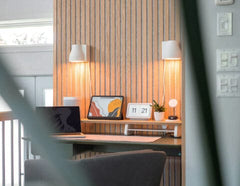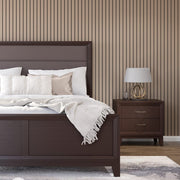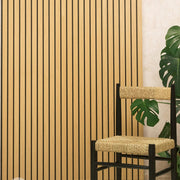- Free shipping available on selected products
-

- Shop The Drew & Jonathan Home™ Collection +
-
-
- Drew & Jonathan Home™ Grainmatch Oak
- Drew & Jonathan Home™ Grainmatch Walnut
- Drew & Jonathan Home™ White Wood Acoustic Slat Wall Panel
- Drew & Jonathan Home™ Gray Oak Acoustic Slat Wall Panel
- Drew & Jonathan Home™ Smoked Oak Acoustic Slat Wall Panel
- Drew & Jonathan Home™ Grainmatch Acoustic Slat Wall Panel Sample Box
- Drew & Jonathan Home™ Acoustic Slat Wall Panel Sample Box
-
- Flutto™ Black Mini-Ridge Flexible Panels
- Flutto™ Blue Mini-Ridge Flexible Panels
- Flutto™ Gray Mini-Ridge Flexible Panels
- Flutto™ White Mini-Ridge Flexible Panels
- Flutto™ Black Ridge Flexible Panels
- Flutto™ Blue Ridge Flexible Panels
- Flutto™ Gray Ridge Flexible Panels
- Flutto™ White Ridge Flexible Panels
- Flutto™ Black Slat Flexible Panels
- Flutto™ Gray Slat Flexible Panels
- Flutto™ White Slat Flexible Panels
-
- Milano Natural Wood Mosaic Tiles
- Stereo Voluspa Natural Wood Mosaic Wall Panels
- Stereo Standard-Hex Natural Wood Mosaic Wall Panels
- Stereo Linear Natural Wood Mosaic Wall Panels
- Geometrical Standard-Hex Natural Wood Mosaic Wall Panels
- Geometrical Honeycomb Natural Wood Mosaic Wall Panels
- Culebra Peak White Reclaimed Wood Wall Panels
- Rocky Mountain Grey Reclaimed Wood Wall Panels
-
-
-
-
- Plaank™ Exterior Composite Fascia Boards
- Plaank™ Black Joist Screws for Slat Wall Panels
- Plaank™ Exterior Slat Corner Trims
- Plaank™ Exterior Slat Fitted Corner Trims
- Plaank™ Screws for Exterior Slat Wall Panels
- Plaank™ Silver Aluminium Joists for Exterior Slat Wall Panels
- Plaank™ Silver Expansion Screws for Exterior Slat Wall Panels
-
-
-
-
- Ledge Shelf Large | Panel Accessories by Slatpanel®
- Ledge Shelf | Panel Accessories by Slatpanel®
- Shelf With Four Hooks | Panel Accessories by Slatpanel®
- Shelf With Four Pegs | Panel Accessories by Slatpanel®
- Black 3D Hook (2pk) | Panel Accessories by Slatpanel®
- Black Wine Rack (2pk) | Panel Accessories by Slatpanel®
- Slatpanel® Screws for Exterior Composite Slat Wall Panels
- Samples
- Sale
Most popular products
-

Luxury American Oak Acoustic Slat Wood Wall Panels
From
$129.99$104.99 -

Luxury American Walnut Acoustic Slat Wood Wall Panels
From
$129.99$104.99 -

Luxury American Oak | Gray Felt | Acoustic Slat Wood Wall Panels
From
$129.99$104.99 -

Luxury Smoked Oak Acoustic Slat Wood Wall Panels
From $104.99
Browse wall paneling
- Drew & Jonathan Home™ x WVH®
- Acoustic Slat Wood Wall Panels
- Acoustic Slat Color Wall Panels
- Acoustic Luxe Slat Wall Panels
- Glow LED Lights
- Paneling Accessories
- Flutto™ Flexible Tambour Wood Panels
- Flutto™ Flexible Tambour Color Panels
- Fluted Tambour Wall Panels
- Plaank™ Outdoor Panels
- Lightweight Flexible Slat Panels
- Lightweight Geometric Wood Panels
- Mosaic Wall Panels
- Reclaimed Wall Panels
- Installation Tools and Accessories
Most popular in wall paneling
View All-

Luxury American Oak Acoustic Slat Wood Wall Panels
From
$129.99$104.99 -

Luxury American Walnut Acoustic Slat Wood Wall Panels
From
$129.99$104.99 -

Luxury American Oak | Gray Felt | Acoustic Slat Wood Wall Panels
From
$129.99$104.99 -

Luxury Smoked Oak Acoustic Slat Wood Wall Panels
From $104.99
-

Black Color Matte Acoustic Slat Wall Panels
From $109.99
-

Dusty Gray Color Matte Acoustic Slat Wall Panels
From
$99.99$94.99 -
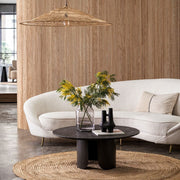
Flutto® Oak Mini-Ridge Flexible Tambour Wood Panels
From $144.99
Acoustic Slat Wood Wall Panels
Shop all-

Luxury American Oak Acoustic Slat Wood Wall Panels
From
$129.99$104.99 -

Luxury American Walnut Acoustic Slat Wood Wall Panels
From
$129.99$104.99 -

Luxury Smoked Oak Acoustic Slat Wood Wall Panels
From $104.99
-

Luxury American Oak | Gray Felt | Acoustic Slat Wood Wall Panels
From
$129.99$104.99
Acoustic Slat Color Wall Panels
Shop all-

Black Color Matte Acoustic Slat Wall Panels
From $109.99
-

Dusty Gray Color Matte Acoustic Slat Wall Panels
From
$99.99$94.99 -

Snow White Color Matte Acoustic Slat Wall Panels
From $94.99
-
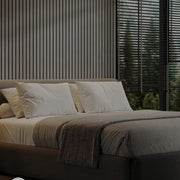
Slatpanel® Luxe Gray Wide Slat Wood Wall Panel
From
$254.99$128.00 -
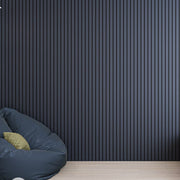
Slatpanel® Luxe Blue Wide Slat Wall Panel
From $249.99
-
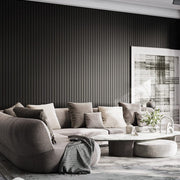
Slatpanel® Luxe Black Wide Slat Wall Panel
From $254.99
Acoustic Luxe Slat Wall Panels
Shop all-
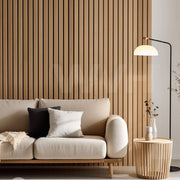
Slatpanel® Luxe American Oak Acoustic Wide Slat Wood Wall Panels
From
$264.99$259.99 -
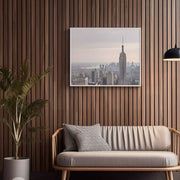
Slatpanel® Luxe American Walnut Acoustic Wide Slat Wood Wall Panels
From
$264.99$259.99 -

Slatpanel® Luxe Black Wide Slat Wall Panel
From $254.99
-

Slatpanel® Luxe Blue Wide Slat Wall Panel
From $249.99
-

Slatpanel® Luxe Gray Wide Slat Wood Wall Panel
From
$254.99$128.00 -
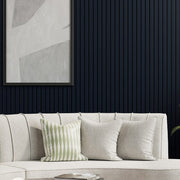
Slatpanel® Luxe Leather Blue Wide Slat Wood Wall Panel
$254.99$127.99 -
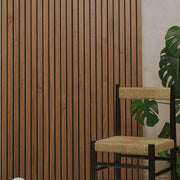
Slatpanel® Walnut Luxe Fire-Rated Acoustic Wood Wall Panel
From
$509.99$254.99
Flutto™ Flexible Tambour Wood Panels
Shop all-

Flutto® Oak Mini-Ridge Flexible Tambour Wood Panels
From $144.99
-
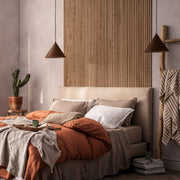
Flutto® Oak Ridge Flexible Tambour Wood Panels
From $144.99
-
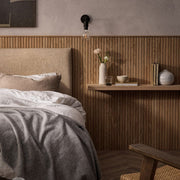
Flutto® Oak Slat Flexible Tambour Wood Panels
From $144.99
-
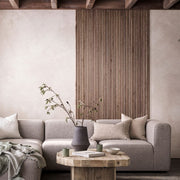
Flutto® Walnut Ridge Flexible Tambour Wood Panels
From $144.99
-
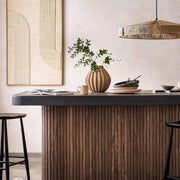
Flutto® Walnut Slat Flexible Tambour Wood Panels
From $144.99
Flutto™ Flexible Tambour Color Panels
Shop all-
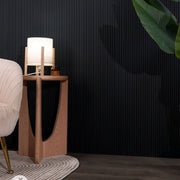
Flutto® Black Mini Ridge Flexible Tambour Panels
From $134.99
-
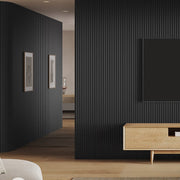
Flutto® Black Ridge Flexible Tambour Panels
From $134.99
-
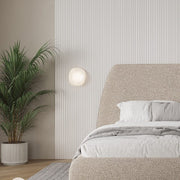
Flutto® White Slat Flexible Tambour Panels
From
$134.99$67.99 -
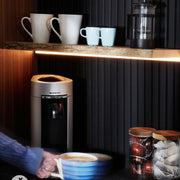
Flutto® Black Slat Flexible Tambour Panels
From $134.99
-
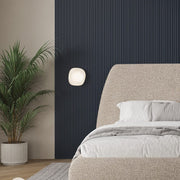
Flutto® Blue Mini Ridge Flexible Tambour Panels
From
$134.99$67.99 -
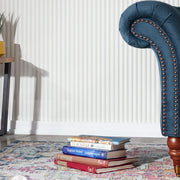
Flutto® White Ridge Flexible Tambour Panels
From
$134.99$67.99 -
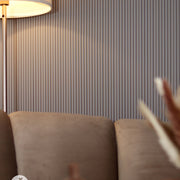
Flutto® Gray Mini Ridge Flexible Tambour Panels
From
$134.99$67.99 -
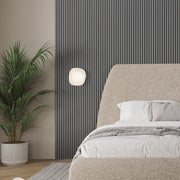
Flutto® Gray Ridge Flexible Tambour Panels
From
$134.99$67.99 -
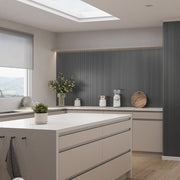
Flutto® Gray Slat Flexible Tambour Panels
From
$134.99$67.99 -
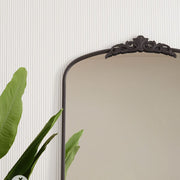
Flutto® White Mini Ridge Flexible Tambour Panels
From
$134.99$67.99
Fluted Tambour Wall Panels
Shop all-

Walnut Ridge Fluted Tambour Wood Effect Wall Panels
$244.99$159.24 -

Walnut Slat Fluted Tambour Wood Effect Wall Panels
From
$244.99$159.24
Plaank™ Outdoor Panels
Shop all-

Plaank® Black Exterior Slat Wall Panels
From $194.99
-

Plaank® Gray Exterior Slat Wall Panels
From
$184.99$92.99 -

Plaank® Oak Exterior Slat Wall Panels
From $184.99
-

Plaank® Walnut Exterior Slat Wall Panels
From $184.99
Lightweight Flexible Slat Panels
Shop all-

Ultraflex Oak Lightweight Flexible Wood Wall Panels
$134.99$79.99
Lightweight Geometric Wood Panels
Shop all-

Geo-Lite Check Geometric Wall Panel
$129.99$49.99 -

Geo-Lite Circle Geometric Wall Panel
$129.99$49.99 -

Geo-Lite Diamond Geometric Wall Panel
$129.99$49.99 -
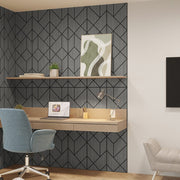
Geo-Lite Prism Geometric Wall Panel
$129.99$49.99 -

Geo-Lite Trapeze Geometric Wall Panel
$129.99$99.99 -
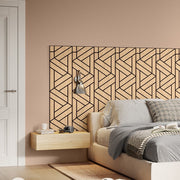
Geo-Lite Weave Geometric Wall Panel
$129.99$49.99 -

Geo-Lite Whirl Geometric Wall Panels
From
$129.99$49.99
Mosaic Wall Panels
Shop all-
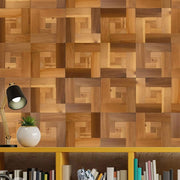
Milano Natural Wood Mosaic Tiles
$109.99$55.00 -
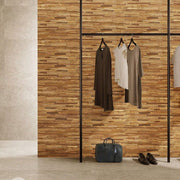
Stereo Voluspa Natural Wood Mosaic Wall Panels
$199.99$100.00 -
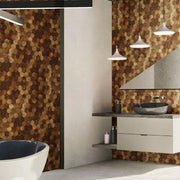
Stereo Standard-Hex Natural Wood Mosaic Wall Panels
$279.99$239.99 -
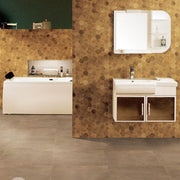
Geometrical Standard-Hex Natural Wood Mosaic Wall Panels
$239.99$119.99 -
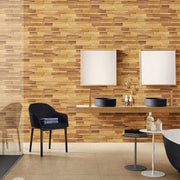
Stereo Linear Natural Wood Mosaic Wall Panels
$199.99$100.00 -
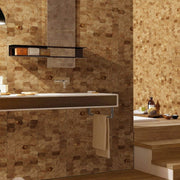
Geometrical Honeycomb Natural Wood Mosaic Wall Panels
$269.99$229.99
Browse our trending products
Featured
View all-

Luxury American Oak Acoustic Slat Wood Wall Panels
From
$129.99$104.99 -

Luxury American Walnut Acoustic Slat Wood Wall Panels
From
$129.99$104.99 -

Luxury American Oak | Gray Felt | Acoustic Slat Wood Wall Panels
From
$129.99$104.99 -

Luxury Smoked Oak Acoustic Slat Wood Wall Panels
From $104.99
-

Black Color Matte Acoustic Slat Wall Panels
From $109.99
-

Flutto® Oak Mini-Ridge Flexible Tambour Wood Panels
From $144.99
-

Flutto® Oak Ridge Flexible Tambour Wood Panels
From $144.99
-

Flutto® Walnut Ridge Flexible Tambour Wood Panels
From $144.99
Wood Range
View All-

Luxury American Oak Acoustic Slat Wood Wall Panels
From
$129.99$104.99 -

Luxury American Walnut Acoustic Slat Wood Wall Panels
From
$129.99$104.99 -

Luxury American Oak | Gray Felt | Acoustic Slat Wood Wall Panels
From
$129.99$104.99 -

Luxury Smoked Oak Acoustic Slat Wood Wall Panels
From $104.99
-

Slatpanel® Luxe American Oak Acoustic Wide Slat Wood Wall Panels
From
$264.99$259.99 -

Slatpanel® Luxe American Walnut Acoustic Wide Slat Wood Wall Panels
From
$264.99$259.99 -

Ultraflex Oak Lightweight Flexible Wood Wall Panels
$134.99$79.99 -

Slatpanel® Walnut Luxe Fire-Rated Acoustic Wood Wall Panel
From
$509.99$254.99
Colored Range
View All-

Black Color Matte Acoustic Slat Wall Panels
From $109.99
-

Dusty Gray Color Matte Acoustic Slat Wall Panels
From
$99.99$94.99 -

Snow White Color Matte Acoustic Slat Wall Panels
From $94.99
-

Slatpanel® Luxe Black Wide Slat Wall Panel
From $254.99
-

Slatpanel® Luxe Blue Wide Slat Wall Panel
From $249.99
-

Slatpanel® Luxe Gray Wide Slat Wood Wall Panel
From
$254.99$128.00 -
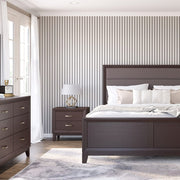
Slatpanel® Luxe Leather White Wide Slat Wood Wall Panel
$254.99$127.99 -
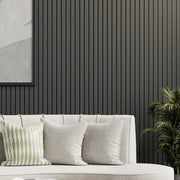
Slatpanel® Luxe Leather Gray Wide Slat Wood Wall Panel
$254.99$127.99 -

Slatpanel® Luxe Leather Blue Wide Slat Wood Wall Panel
$254.99$127.99 -
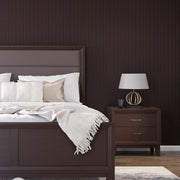
Slatpanel® Luxe Leather Brown Wide Slat Wood Wall Panel
$254.99$127.99
Wide Slat Wood Range
View All-

Slatpanel® Luxe American Oak Acoustic Wide Slat Wood Wall Panels
From
$264.99$259.99 -

Slatpanel® Luxe American Walnut Acoustic Wide Slat Wood Wall Panels
From
$264.99$259.99 -

Slatpanel® Walnut Luxe Fire-Rated Acoustic Wood Wall Panel
From
$509.99$254.99
Wide Slat Colored Range
Shop all-

Slatpanel® Luxe Black Wide Slat Wall Panel
From $254.99
-
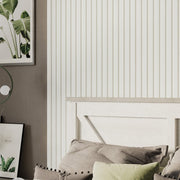
Slatpanel® Luxe White Wide Slat Wood Wall Panel
From $254.99
-

Slatpanel® Luxe Blue Wide Slat Wall Panel
From $249.99
-

Slatpanel® Luxe Gray Wide Slat Wood Wall Panel
From
$254.99$128.00 -

Slatpanel® Luxe Leather White Wide Slat Wood Wall Panel
$254.99$127.99 -

Slatpanel® Luxe Leather Gray Wide Slat Wood Wall Panel
$254.99$127.99 -

Slatpanel® Luxe Leather Blue Wide Slat Wood Wall Panel
$254.99$127.99 -

Slatpanel® Luxe Leather Brown Wide Slat Wood Wall Panel
$254.99$127.99
Leather Range
Shop all-

Slatpanel® Luxe Leather White Wide Slat Wood Wall Panel
$254.99$127.99 -

Slatpanel® Luxe Leather Brown Wide Slat Wood Wall Panel
$254.99$127.99 -

Slatpanel® Luxe Leather Blue Wide Slat Wood Wall Panel
$254.99$127.99 -

Slatpanel® Luxe Leather Gray Wide Slat Wood Wall Panel
$254.99$127.99
Browse our collections
Featured
-

Luxury American Oak Acoustic Slat Wood Wall Panels
From
$129.99$104.99 -

Luxury American Oak | Gray Felt | Acoustic Slat Wood Wall Panels
From
$129.99$104.99 -

Luxury American Walnut Acoustic Slat Wood Wall Panels
From
$129.99$104.99 -

Luxury Smoked Oak Acoustic Slat Wood Wall Panels
From $104.99
-

Slatpanel® Luxe American Oak Acoustic Wide Slat Wood Wall Panels
From
$264.99$259.99 -

Slatpanel® Luxe American Walnut Acoustic Wide Slat Wood Wall Panels
From
$264.99$259.99 -

Flutto® Oak Mini-Ridge Flexible Tambour Wood Panels
From $144.99
-

Flutto® Oak Ridge Flexible Tambour Wood Panels
From $144.99
-

Flutto® Oak Slat Flexible Tambour Wood Panels
From $144.99
Slatted Range
Shop all-

Luxury American Oak Acoustic Slat Wood Wall Panels
From
$129.99$104.99 -

Luxury American Walnut Acoustic Slat Wood Wall Panels
From
$129.99$104.99 -

Luxury American Oak | Gray Felt | Acoustic Slat Wood Wall Panels
From
$129.99$104.99 -

Luxury Smoked Oak Acoustic Slat Wood Wall Panels
From $104.99
-

Slatpanel® Luxe American Oak Acoustic Wide Slat Wood Wall Panels
From
$264.99$259.99 -

Slatpanel® Luxe American Walnut Acoustic Wide Slat Wood Wall Panels
From
$264.99$259.99 -

Ultraflex Oak Lightweight Flexible Wood Wall Panels
$134.99$79.99 -

Slatpanel® Walnut Luxe Fire-Rated Acoustic Wood Wall Panel
From
$509.99$254.99
Fluted Range
Shop all-

Flutto® Oak Ridge Flexible Tambour Wood Panels
From $144.99
-

Flutto® Walnut Ridge Flexible Tambour Wood Panels
From $144.99
-

Flutto® Oak Mini-Ridge Flexible Tambour Wood Panels
From $144.99
-

Flutto® Oak Slat Flexible Tambour Wood Panels
From $144.99
-

Flutto® Walnut Slat Flexible Tambour Wood Panels
From $144.99
Fire-Rated Range
Shop all-

Slatpanel® Walnut Luxe Fire-Rated Acoustic Wood Wall Panel
From
$509.99$254.99
Mosaic Range
Shop all-

Milano Natural Wood Mosaic Tiles
$109.99$55.00 -

Stereo Voluspa Natural Wood Mosaic Wall Panels
$199.99$100.00 -

Stereo Standard-Hex Natural Wood Mosaic Wall Panels
$279.99$239.99 -

Geometrical Standard-Hex Natural Wood Mosaic Wall Panels
$239.99$119.99 -

Stereo Linear Natural Wood Mosaic Wall Panels
$199.99$100.00 -

Geometrical Honeycomb Natural Wood Mosaic Wall Panels
$269.99$229.99
Browse our collections
Featured
View all colored panels-

Black Color Matte Acoustic Slat Wall Panels
From $109.99
-

Dusty Gray Color Matte Acoustic Slat Wall Panels
From
$99.99$94.99 -

Snow White Color Matte Acoustic Slat Wall Panels
From $94.99
-

Slatpanel® Luxe Leather Blue Wide Slat Wood Wall Panel
$254.99$127.99 -

Slatpanel® Luxe Leather Brown Wide Slat Wood Wall Panel
$254.99$127.99 -

Slatpanel® Luxe Leather Gray Wide Slat Wood Wall Panel
$254.99$127.99 -

Slatpanel® Luxe Leather White Wide Slat Wood Wall Panel
$254.99$127.99 -

Slatpanel® Luxe White Wide Slat Wood Wall Panel
From $254.99
Slatted Range
Shop all-

Black Color Matte Acoustic Slat Wall Panels
From $109.99
-

Dusty Gray Color Matte Acoustic Slat Wall Panels
From
$99.99$94.99 -

Snow White Color Matte Acoustic Slat Wall Panels
From $94.99
-

Slatpanel® Luxe Black Wide Slat Wall Panel
From $254.99
-

Slatpanel® Luxe Blue Wide Slat Wall Panel
From $249.99
-

Slatpanel® Luxe Gray Wide Slat Wood Wall Panel
From
$254.99$128.00 -

Slatpanel® Luxe Leather White Wide Slat Wood Wall Panel
$254.99$127.99 -

Slatpanel® Luxe Leather Gray Wide Slat Wood Wall Panel
$254.99$127.99 -

Slatpanel® Luxe Leather Blue Wide Slat Wood Wall Panel
$254.99$127.99 -

Slatpanel® Luxe Leather Brown Wide Slat Wood Wall Panel
$254.99$127.99
Wide Slat Range
Shop all-

Slatpanel® Luxe Black Wide Slat Wall Panel
From $254.99
-

Slatpanel® Luxe White Wide Slat Wood Wall Panel
From $254.99
-

Slatpanel® Luxe Blue Wide Slat Wall Panel
From $249.99
-

Slatpanel® Luxe Gray Wide Slat Wood Wall Panel
From
$254.99$128.00 -

Slatpanel® Luxe Leather White Wide Slat Wood Wall Panel
$254.99$127.99 -

Slatpanel® Luxe Leather Gray Wide Slat Wood Wall Panel
$254.99$127.99 -

Slatpanel® Luxe Leather Blue Wide Slat Wood Wall Panel
$254.99$127.99 -

Slatpanel® Luxe Leather Brown Wide Slat Wood Wall Panel
$254.99$127.99
Fluted Range
Shop all-

Flutto® Black Mini Ridge Flexible Tambour Panels
From $134.99
-

Flutto® Black Ridge Flexible Tambour Panels
From $134.99
-

Flutto® White Slat Flexible Tambour Panels
From
$134.99$67.99 -

Flutto® Black Slat Flexible Tambour Panels
From $134.99
-

Flutto® Blue Mini Ridge Flexible Tambour Panels
From
$134.99$67.99 -

Flutto® White Ridge Flexible Tambour Panels
From
$134.99$67.99 -

Flutto® Gray Mini Ridge Flexible Tambour Panels
From
$134.99$67.99 -

Flutto® Gray Ridge Flexible Tambour Panels
From
$134.99$67.99 -

Flutto® Gray Slat Flexible Tambour Panels
From
$134.99$67.99 -

Flutto® White Mini Ridge Flexible Tambour Panels
From
$134.99$67.99
Leather Range
Shop all-

Slatpanel® Luxe Leather White Wide Slat Wood Wall Panel
$254.99$127.99 -

Slatpanel® Luxe Leather Brown Wide Slat Wood Wall Panel
$254.99$127.99 -

Slatpanel® Luxe Leather Blue Wide Slat Wood Wall Panel
$254.99$127.99 -

Slatpanel® Luxe Leather Gray Wide Slat Wood Wall Panel
$254.99$127.99
Browse our accessories
Featured
-
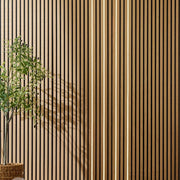
Slatpanel® Glow Flexible LED Light Strip Pack
From $254.99
Introducing Plaank
View all-

Plaank® Black Exterior Slat Wall Panels
From $194.99
-

Plaank® Gray Exterior Slat Wall Panels
From
$184.99$92.99 -

Plaank® Oak Exterior Slat Wall Panels
From $184.99
-

Plaank® Walnut Exterior Slat Wall Panels
From $184.99
Exterior Composite Panels
View all-

Plaank® Gray Exterior Slat Wall Panels
From
$184.99$92.99 -

Plaank® Oak Exterior Slat Wall Panels
From $184.99
-

Plaank® Walnut Exterior Slat Wall Panels
From $184.99
-

Plaank® Black Exterior Slat Wall Panels
From $194.99
Shipping fees and times
Free shipping available
- We aim to process all orders within 24 hours and for your order to be dispatched within 1-3 days following order placement (excluding weekends and holidays). Upon dispatch of your order, you will receive a notification email with tracking details.
- See more on our
- Shipping policy page
Standard delivery times
- Continental US 5-7 business days
Returns policy
All orders come with a 30 day returns guarantee. We understand that sometimes, a product may not meet your expectations. That's why we offer a simple and straightforward process for returning items to our store. With our easy return policy, you can shop with confidence, knowing that if you're not completely satisfied, we've got you covered. Please start a live chat or give us a call to start your returns process.
Get inspired
